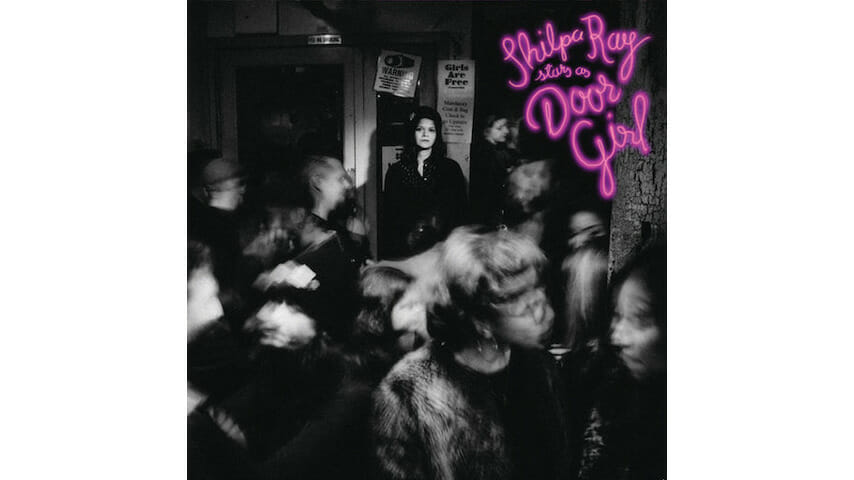Shilpa Ray: Door Girl

There are moments on Shilpa Ray’s new album Door Girl in which the singer-songwriter’s perspective feels forced, her point-of-view too specific. When she chains her anecdotes to specific city blocks it can feel exclusive and alienating. She is writing about a niche experience, though. As an examination of working, living and loving in New York City, her self-centered focus is a necessary metaphor for city life. If you don’t make yourself the eye of the storm, you risk the damage of being caught in its winds.
With her commanding presence and a penchant for spectacle, Shilpa Ray is a perfect fit for the job of assessing life in New York City. The title makes reference to the time she spent working the door at Pianos on the Lower East Side. The album finds Shilpa Ray struggling to make ends meet and hold onto her humanity, succeeding and failing in equal measure. She does so with humility and humor.
Emotional exhaustion at the the hyper vigilance the city demands of its citizens is a constant presence on Door Girl. Suburban life is a constant temptation. Economic survival is at once menacing and banal. Compassion slips out the door before you know to miss it. “Don’t remember the last time that I helped someone/Don’t remember the last time I helped myself/Riding the tunnels with my horse blinders on/I’ve been standing clear of the closing doors like everyone else,” she muses over dreamy keys on “Add Value Add Time,” a meditation on the grind to stay afloat in the city. “Do you become a better person when you get out of here,” she asks. “Hudson Valley Real Estate says it’s so.” Staying in the city becomes a test of character. There is virtue in it, as the prayer bell that rings to mark the album’s opening will attest.
-

-

-

-

-

-

-

-

-

-

-

-

-

-

-

-

-

-

-

-

-

-

-

-

-

-

-

-

-

-

-

-

-

-

-

-

-

-

-

-








































